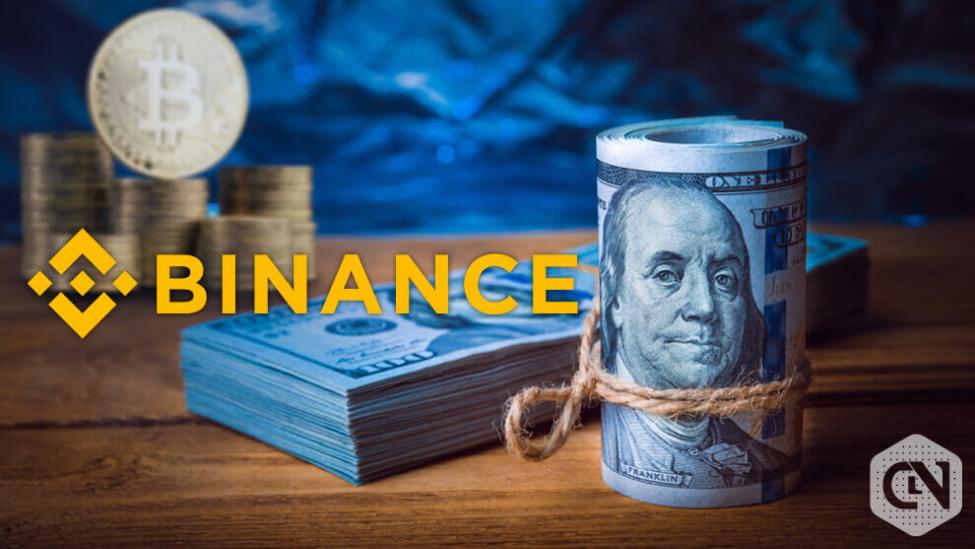What Are the Tax Implications of Investing in SEC Coin Binance?
The advent of digital currencies has introduced a new layer of complexity to the world of investing, and with it, a host of tax implications. SEC Coin Binance, as a prominent cryptocurrency, is no exception. Understanding the tax implications associated with investing in SEC Coin Binance is crucial for investors to make informed decisions and navigate the complexities of cryptocurrency taxation.

Tax Implications Of Investing In SEC Coin Binance:
A. Capital Gains Tax:
- Explanation: Capital gains tax is a tax levied on the profit realized from the sale of an asset, such as SEC Coin Binance, that has appreciated in value.
- Calculation: Capital gains tax is calculated as the difference between the sale price and the cost basis (purchase price plus certain expenses) of the asset.
- Short-term vs. Long-term Capital Gains Tax Rates: The holding period of an asset determines whether it is subject to short-term or long-term capital gains tax rates. Short-term capital gains, held for less than a year, are taxed at ordinary income tax rates, while long-term capital gains, held for a year or more, are taxed at lower rates.
- Impact of Holding Period: The length of time an investor holds SEC Coin Binance before selling it significantly impacts their capital gains tax liability.
B. Income Tax:
- Explanation: Income tax is a tax levied on an individual's or entity's taxable income, which includes cryptocurrency rewards.
- Taxability of Cryptocurrency Rewards: Cryptocurrency rewards, such as those earned through staking or mining SEC Coin Binance, are considered taxable income and must be reported to the tax authorities.
- Reporting Requirements: Cryptocurrency rewards must be reported on tax returns using the appropriate forms, such as Form 1040 for individuals and Form 1120 for corporations.
- Tax Implications of Staking and Mining: Staking and mining SEC Coin Binance may have different tax implications depending on the specific circumstances and the tax laws of the jurisdiction.
C. Sales Tax:
- Explanation: Sales tax is a tax levied on the sale of goods and services, and in some jurisdictions, it may apply to cryptocurrency transactions.
- Applicability to Cryptocurrency Transactions: The applicability of sales tax to cryptocurrency transactions varies across jurisdictions. Some jurisdictions consider cryptocurrency transactions as barter exchanges, while others treat them as taxable sales.
- Varying Sales Tax Laws: Sales tax laws and rates differ across jurisdictions, leading to varying tax implications for investors based on their location.
- Impact on Investment Cost: Sales tax, if applicable, can increase the overall cost of investing in SEC Coin Binance.
Tax Considerations For Different Types Of Investors:
A. Individual Investors:
- Tax Implications: Individual investors need to consider capital gains tax, income tax, and sales tax implications when investing in SEC Coin Binance.
- Strategies for Minimizing Tax Liability: Strategies such as holding SEC Coin Binance for a long-term to qualify for lower capital gains tax rates and utilizing tax-advantaged investment accounts can help minimize tax liability.
- Tax-Advantaged Investment Accounts: Tax-advantaged investment accounts, such as Individual Retirement Accounts (IRAs) and 401(k) plans, offer tax benefits and can be used to hold SEC Coin Binance.
B. Institutional Investors:
- Tax Implications: Institutional investors, such as investment funds and trusts, need to consider the tax implications of investing in SEC Coin Binance for their clients or shareholders.
- Considerations for Investment Funds and Trusts: Investment funds and trusts need to consider the tax treatment of cryptocurrency rewards, the impact of holding period on capital gains tax liability, and the tax implications of distributing cryptocurrency to investors.
- Tax Planning Strategies: Institutional investors can employ tax planning strategies, such as diversification and tax-efficient investment structures, to minimize the overall tax burden.
Reporting And Compliance:
A. Reporting Requirements:
- Form 8949: Investors need to use Form 8949 to report the annual summary of sales and other dispositions of capital assets, including SEC Coin Binance.
- Schedule D: Capital gains and losses from the sale of SEC Coin Binance are reported on Schedule D of the tax return.
- Form 1040: Individual investors report their cryptocurrency-related income and expenses on Form 1040, U.S. Individual Income Tax Return.
- Form 1120: Corporations report their cryptocurrency-related income and expenses on Form 1120, U.S. Corporation Income Tax Return.
B. Compliance Considerations:
- Record-keeping Requirements: Investors need to maintain accurate records of their cryptocurrency transactions, including purchase and sale dates, prices, and any fees or expenses incurred.
- Penalties for Non-compliance: Failure to comply with tax reporting and record-keeping requirements can result in penalties and interest charges.
- Importance of Seeking Professional Tax Advice: Given the complexities of cryptocurrency taxation, it is advisable for investors to consult with a tax professional to ensure compliance and minimize tax liability.
Investing in SEC Coin Binance involves various tax implications that investors need to be aware of. Understanding capital gains tax, income tax, and sales tax considerations is crucial for making informed investment decisions. Different types of investors, such as individual and institutional investors, may have unique tax considerations. Proper reporting and compliance with tax laws are essential to avoid penalties and ensure accurate tax payments. Consulting with a tax professional is highly recommended to navigate the complexities of cryptocurrency taxation and minimize tax liability.
YesNo

Leave a Reply